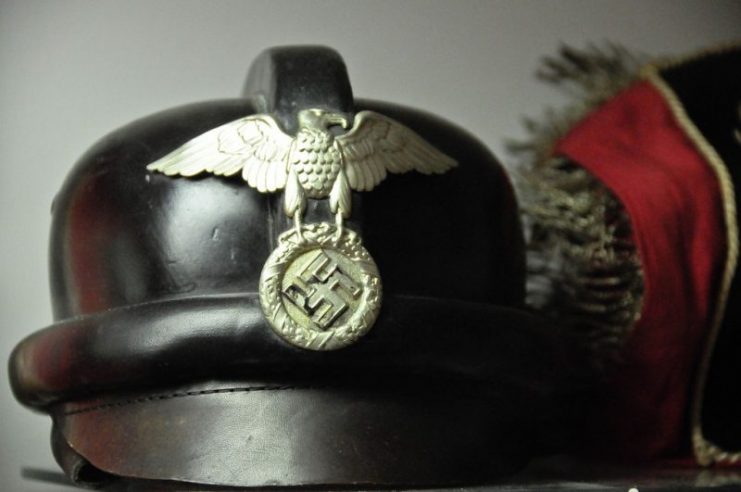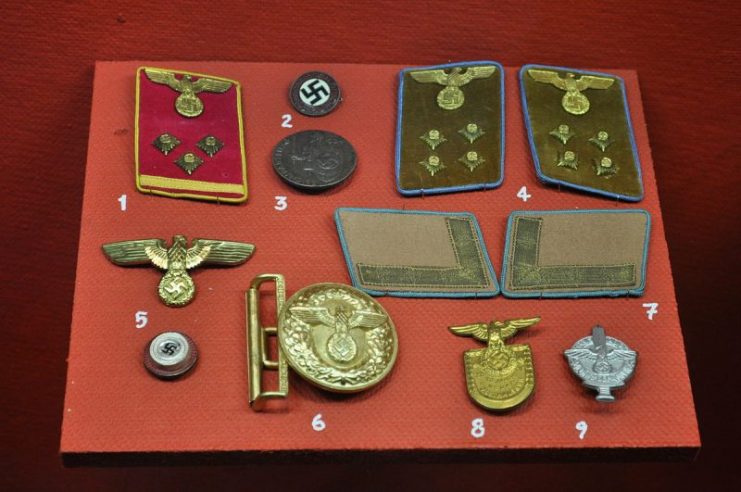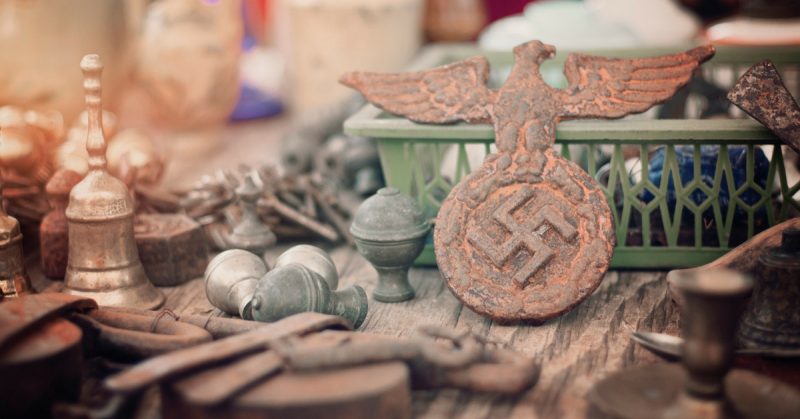Any sale of Nazi memorabilia is guaranteed to stir up a storm of controversy and, while it is legal to trade in Nazi artifacts, is it morally acceptable?
It is a discussion that needs to be held. An advertised sale of Nazi memorabilia has caused an uproar, but it is not only Nazi memorabilia that provokes such a reaction. Memorabilia from any of the major genocides inflicted on the world is certain to cause heartache to those who were involved.
The debate has been going on for several years ever since Vermot de Pas, an auction house in Paris, had planned a sale of Nazi memorabilia. The list of items included dishes belonging to Hitler; a doily sporting the imperial eagle and a swastika and identification papers belonging to Herman Goring. All of these objects were brought back to France by French soldiers at the end of WWII.
The auction was eventually canceled because as soon as it was advertised, it caused an uproar with Jewish organizations, politicians and members of the public vehemently opposed to the sale taking place. Aurélie Filippetti, the French Culture Secretary at the time, said the decision was correct from a moral and historical point of view.

The view of the CRIF, the largest Jewish organization in France, went much further. They believed that the decision to cancel was correct, but it did not go far enough. The organization firmly believes that this sort of memorabilia should not be available for sale as if it were just an everyday item. They think such memorabilia should only be available for purchase by historical societies and museums.
Countries around the world treat this type of memorabilia differently. In Germany, it is legal to buy, sell and own Nazi memorabilia, providing the Nazi symbols are covered, as the public display of Nazi symbols is banned. There is a flourishing market in Germany for Nazi memorabilia which can be found at most flea markets and bric-a-brac shops.
The memorabilia, which often come from Poland, include medals, uniforms, weapons, and books. Other European countries, as well as the USA, have no legal restrictions on the sale or display of Nazi symbols. Collectors in those countries are prepared to pay premium prices for good quality memorabilia, and an SS uniform in good condition can fetch €4,000. As with many popular collectibles, fake goods are rife, and many items are knock-offs, so the adage of ‘buyer beware’ certainly applies.
Organizers of sales of Nazi memorabilia in Germany deny they are designed to glorify the Nazi regime. They wish to give people a clear picture of what occurred and what it did to Europe. Hans Ottomeyer, a German art historian, believes that trying to hide what happened does no favors for anyone. He thinks that addressing and discussing the issue contributes to a healthy debate about how this type of memorabilia should be handled.

It can be challenging to have such debates, as emotions around the memorabilia run high. People have extremely strong views on what should and should not be allowed. Inevitably, the freedom for people to collect, own and display what they want, will also be raised.
Part of the discussion must be that, if Nazi memorabilia is displayed in private, is it being used to create an environment of division and incite people to hate others based on their race, color, creed or sexual orientation?
It will be some time before debates over this type of memorabilia can be held in a calm environment. Until people can discuss this very distressing subject rationally, it is essential for the purveyors of such objects to be aware of the emotions stirred up and that for many people it is morally reprehensible to market them in any way.
